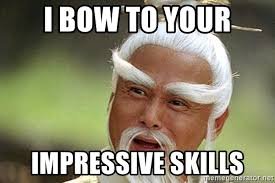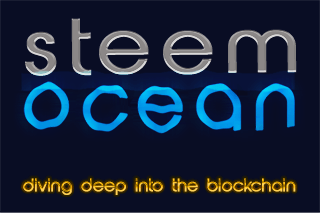Why being a 'Master' isn't so great.
In 'spiritual' circles it is common to hear people talking about self mastery. This is also common in artistic circles - where people talk of mastering an art. There's a subtle issue here that makes a big difference that needs to be explained now.

Have you noticed that the word 'master' has a common partner in 'slave'? The accepted etymology, currently, for 'Master' is:
late Old English mægester "a man having control or authority; a teacher or tutor," from Latin magister (n.) "chief, head, director, teacher" (source of Old French maistre, French maître, Spanish and Italian maestro, Portuguese mestre, Dutch meester, German Meister), contrastive adjective ("he who is greater") from magis (adv.) "more," from PIE *mag-yos-, comparative of root *meg- "great." The form was influenced in Middle English by Old French cognate maistre.
Source: Etymonline
So far from simply being a term for someone who is 'great' at something - 'master' literally refers to CONTROL, as well as referring to the ability to be a teacher. However, we have the word 'teacher' for those that teach and we have 'great' for those who excel. What's the difference between a 'great teacher' and a 'master'? The element of control.
As I have often said, control requires a 'twoness' - the 'controlled' and the 'controller'. So if we say we have 'self control' we must be, by definition, splitting our inner being into more than one sub part - one that controls and one that is controlled. Is this a healthy approach? Aren't we really, in truth, a singular oneness? We are! Self control is an unloving approach that almost always results in the mental processes exerting command over the emotions in ways that don't feel good but which get denied in favour of the imagined vision of a great self (posturing).
Mastering the arts?
What one person means by 'mastering an art' may not exactly be the same as an other's definition. However, the process of 'mastering an art' is a process of channeling vision/intention into a manifested form (usually). The essence of channeling vision and intention is one that is inhibited by a misalignment of thought, feeling and heart and more than anything else it is correction of this that results in what we call 'greatness'. This is, for example, how it is possible for rare individuals to be great at an art even from a very young age, without significant experience (e.g. Mozart). In this context what people call 'mastering an art', being as the creative process is one within self, is often a process of making misaligned elements in self subservient to the dominant process (which is usually the mind). We are inherently creative and so we don't need discipline, force or control to excel at creativity, we just need balance.
The alternative is to simply express art and be in acceptance of what is created. As self comes into greater balance through intention and a healing process, the art's perceived greatness will reflect that balance.
Free will is our nature and when we suppress it within self through artificial compartmentalised thought and definitions, we limit our greatness. Usually, we replace this with visions and beliefs of how great we are that attempt to cover up our shortfalls. This has become so common that it has become normalised for people to think of themselves as incapable of greatness and so anyone with any skill can come along and claim to be 'great' or 'experts', when really they are mediocre and true greatness has yet to be realised.
Wishing you well,
Ura Soul
Originally shared at Ureka , here.
Vote @ura-soul for Steem Witness!

(Witnesses are the computer servers that run the Steem Blockchain.
Without witnesses there is no Steem, Steemit, DTube, Utopian or
Busy... You can really help Steem by making your 30 witness votes count!)



i think in terms of mastery of the ego. learning to use it instead of being used. Eckhart Tolle said it best I think, in his book 'the Power of Now' .. the 'battle' is to stay conscious, aware.. the watcher of our body and feelings, and if actions is to arise, it comes from a place of no thought. I like that, i strive for that.
i let the spirit guide me by residing in peace, love and joy.
Well, this whole subject is a can of worms! ;)
For me, something I realised a long 'time' ago is that 'there is no battle, only vibration'. This refers to the reality that nothing really needs to be overpowered or battled - we just go to the cause of the vibration involved and change what we are doing that caused it to exist. The reason why this isn't so obvious to many people is that they are disconnecting their conscious thinking mind from their emotions and thus are unable to deeply connect to the ways in which their actions/thoughts are drawing experiences and things to their personal 'arena'.
I personally have no problem with thought - spirit is a thinker.
and from my perspective, folks need to slow down, learn to be quiet, and hear that still small voice.. reside with it, and it heals all, no 'work' but to pay attention to what you feel really.
I have no problem with thought, i love to computer program, hypothosis about why people are the way they are, if anything can be done, often leaving it unanswered but with God.
i think it is about no believing thought is right. it can never be completely right, because it lacks the ability to encompass the whole of anything.
the mind can only ever deal with a subset of data.
the spirit deals with the entirity of the data and we feel that in our heart/feelings.
that is how i understand it.
Yes, I mostly agree with that - I just understand that the mind is like a muscle and needs to grow and expand in order to become capable of processing as spirit. It's not helpful to define the mind's abilities based on the minds we see on Earth, given that we are so injured and in denial.
i don't think we are ever truly injured, we do have a lot to drop. how can you ever hurt stillness? you simply return.
i agree that mind is like a muscle, i see the problem as people thinking they are their mind.
so the first step is to rememdy that, because it makes other actions so much more productive.
The word master to me are those that are knowledgeable and well talented on a specific crafts and arts , but from your analysis it seems master has to also do with having control over persons or group of people in which they also take orders from the person in charged @ura-soul
Your are equating an eastern word with a western one.
And the eastern word that is usually translated into "master" (in english) is a very important and meaningful one.
Teacher is a word that has lost all of its meaning here in the west.
Teacher: A person who schools (makes swim all in one direction) children in a low security prison driving out the desire to learn and making sure those children will never questions their slavery.
So, i cannot follow your suggestions or train of thought.
When i hear the word master, i have to distinguish between eastern and western use. But, shifting to another word that doesn't have the meaning is not adequate.
I don't speak asian languages and so am mostly ignorant as to their etymology - I would love to know them. I am focusing on the word as it is used in English, globally. In my own experience of masters in Asian schools - there often tends to be a quality of control in there too - especially in martial arts.
There are plenty of teachers who are balanced, they just tend not to participate in state education.
But, you are not focussing on the word as it is used in English.
The entire, going and sitting at the feet of the "master" is an entirely eastern tradition. And so, that is using that word in that context.
Then you switch to slave-master dynamic and that is an entirely western context.
So, discounting eastern, because there is a western is a pretty lame argument.
If, master meant strictly that, and only that, you owned a slave, then of course i would agree with your post.
But, since we don't really have slaves here in the west, then it is just virtue-signalling to drop the word because it used to be used in slavery.
Firstly, I am talking about control - which is the thread that runs through all the examples - in many cases. The concept of a master of an asian martial arts school often equates to a degree of hierarchy and control/subordination. A slave/master dynamic tends to be more extreme, but the principle of control remains the same.
Virtue signalling? I think you misunderstand the point here.
Hi @ura-soul!
Your post was upvoted by @steem-ua, new Steem dApp, using UserAuthority for algorithmic post curation!
Your UA account score is currently 6.971 which ranks you at #92 across all Steem accounts.
Your rank has not changed in the last three days.
In our last Algorithmic Curation Round, consisting of 211 contributions, your post is ranked at #57.
Evaluation of your UA score:
Feel free to join our @steem-ua Discord server